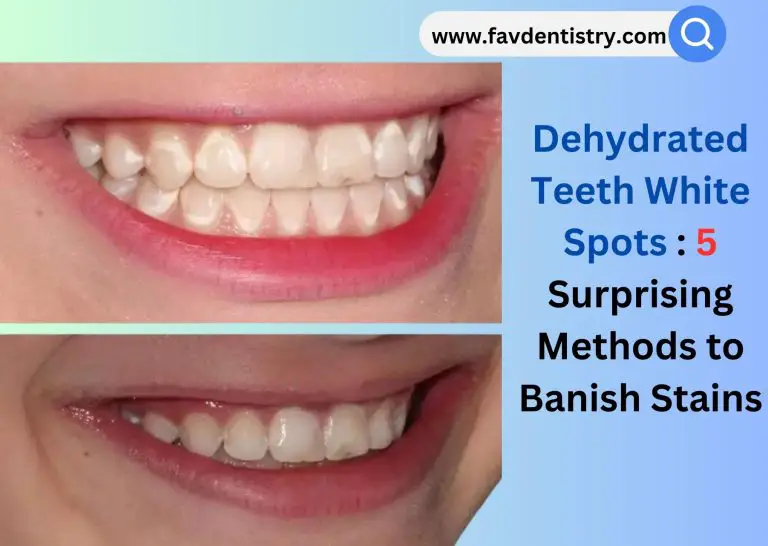Teeth Scaling Vs Cleaning: Uncovering the Best Method for Dental Hygiene
Teeth scaling removes tartar from below the gumline, while teeth cleaning focuses on removing plaque and stains from the tooth surfaces. Teeth scaling is a deep cleaning procedure that helps prevent gum disease and tooth loss.
In contrast, teeth cleaning is a routine maintenance procedure that promotes oral health and a fresh breath. Both procedures aim to maintain a healthy smile, but scaling is more intensive and may require local anesthesia for comfort. During scaling, a dental professional uses specialized tools to remove hardened plaque and tartar from the tooth and root surfaces, reducing the risk of gum infections.
Cleaning, on the other hand, involves polishing the teeth and removing surface stains for a brighter smile. Regular scaling and cleaning are essential for optimal oral hygiene and preventing dental problems.
What Is Teeth Scaling?
Teeth scaling involves the removal of plaque and tartar, a common dental procedure. The process includes using special tools to scrape and clean the surface of the teeth. It is important because it helps prevent gum disease and tooth decay.
Compared to teeth cleaning, scaling is a deeper and more thorough process that targets the accumulation of bacteria. Teeth cleaning, on the other hand, focuses on maintaining oral hygiene and removing surface stains. The key difference between the two lies in their intensity and purpose.
While both are essential for oral health, scaling is recommended for those with severe tartar buildup, while cleaning is suitable for regular maintenance. Understanding these distinctions can help individuals make informed decisions about their dental care.
What Is Teeth Cleaning?
Teeth cleaning involves the removal of plaque and tartar buildup from the teeth and gums. The process includes scaling, where a dental professional uses special tools to scrape away the hardened deposits. Regular teeth cleaning is essential for oral health.
It helps prevent gum disease, cavities, and bad breath. By removing plaque and tartar, it reduces the risk of tooth decay and tooth loss. Besides maintaining oral health, teeth cleaning also has various benefits. It improves the appearance of teeth, making them look brighter and whiter.
It enhances overall oral hygiene and contributes to a healthier smile. Regular dental cleanings should be a part of everyone’s oral care routine to ensure optimal dental health.
Procedure Of Teeth Scaling
Teeth scaling is a dental procedure that involves the removal of plaque and tartar from the teeth. The process is performed using specialized tools and equipment such as ultrasonic scalers and hand instruments. The dentist or dental hygienist carefully scales the teeth, working on each individual tooth to ensure thorough cleaning.
This procedure helps to prevent gum disease and maintain oral hygiene. Some precautions and considerations during teeth scaling include using proper technique to avoid damaging the enamel, being gentle to prevent gum irritation, and ensuring the patient’s comfort throughout the process.
The step-by-step process involves examining the mouth, scaling the teeth, and finishing off with polishing to remove any remaining stains. Regular teeth scaling is important to keep the teeth and gums healthy and maintain overall oral health.
Techniques For Effective Teeth Cleaning
Teeth scaling and cleaning are both crucial for maintaining oral health. Proper brushing techniques are essential for effective cleaning. Flossing techniques help to remove plaque and debris from between teeth. Tongue cleaning removes bacteria and freshens breath. Using mouthwash and additional aids, like dental picks or interdental brushes, can further enhance oral hygiene.
These techniques contribute to preventing gum diseases, cavities, and bad breath. Regular dental check-ups are also important to identify and address any underlying dental issues. By following these techniques and practicing good oral hygiene habits, individuals can ensure their teeth and gums stay healthy.
Remember, taking care of your oral health is essential for overall well-being.
Potential Risks And Complications
Teeth scaling and cleaning are both essential for maintaining good oral health. However, it’s important to be aware of the potential risks and complications that may arise. One of the side effects of teeth scaling is tooth sensitivity, which can cause discomfort when consuming hot or cold food and drinks.
Improper teeth cleaning can also lead to dental problems such as cavities and gum disease. In some cases, teeth scaling may result in gum inflammation or bleeding. Additionally, if not performed by a trained professional, teeth scaling can damage the tooth enamel.
It is crucial to choose a reputable dentist or dental hygienist who specializes in teeth scaling to minimize these dangers. Being informed about the possible complications can help you make informed decisions about your oral health.
Effectiveness Of Teeth Scaling
Teeth scaling and cleaning are both effective methods for maintaining oral health. Scaling provides benefits for gum health by removing plaque and tartar buildup. This procedure improves overall oral hygiene by reaching areas that regular brushing and flossing can miss.
It also has long-term effects on oral health, preventing gum disease and reducing the risk of tooth loss. Scaling helps to keep the gums healthy and free from infection, promoting a healthy smile. Regular dental cleanings are necessary to maintain oral health, as they complement at-home oral care routines.
By removing plaque and tartar, scaling and cleaning prevent tooth decay and gum problems. It is essential to consult a dental professional to determine the most suitable treatment based on individual needs.
Effectiveness Of Teeth Cleaning
Teeth cleaning is a highly effective way to maintain oral health and prevent dental issues. Regular cleaning plays a crucial role in removing plaque and tartar buildup, which can lead to tooth decay and gum disease. By eliminating these harmful substances, teeth cleaning helps to keep the teeth and gums healthy.
It also helps to freshen your breath and improve overall oral hygiene. Unlike teeth scaling, which is a more invasive procedure that involves the removal of hardened plaque below the gum line, cleaning focuses on the visible surfaces of the teeth. Thus, it is a less intensive treatment option while still providing significant benefits.
Regular cleaning is recommended by dental professionals to ensure optimal oral health and prevent future dental problems. So, make sure to schedule your regular teeth cleaning appointments to keep your smile radiant and healthy.
Factors To Consider
Teeth scaling and cleaning are both important for maintaining oral health. When considering which to choose, factors such as the severity of dental issues and personal oral hygiene habits should be taken into account. The severity of dental issues plays a role in determining whether scaling or cleaning is needed.
For more advanced problems like gum disease or extensive plaque buildup, scaling may be necessary. On the other hand, regular cleaning is suitable for maintaining good oral hygiene. Personal oral hygiene habits also play a significant role. Regular brushing, flossing, and using mouthwash can help prevent issues that may require scaling.
Seeking professional recommendations from a dentist is crucial in determining which procedure is best for individual needs. By considering these factors, individuals can make an informed decision regarding teeth scaling and cleaning to ensure optimal oral health.
Best Method For Different Situations
Teeth scaling and cleaning are both dental procedures used for different situations. For mild dental issues or preventive care, dental cleaning is the best method to remove plaque and tartar. However, for moderate to severe dental issues, teeth scaling is recommended to deeply clean the teeth and gums.
In some cases, a combination of both methods may be used to achieve optimal results. It is important to note that these procedures should be performed by a professional dentist to ensure safety and effectiveness. Regular dental check-ups and proper oral hygiene at home are essential for maintaining healthy teeth and gums.
So, consult your dentist to determine the best method for your specific dental needs.
Maintaining Dental Hygiene
Maintaining dental hygiene is crucial for healthy teeth and gums. Regular visits to the dentist play a significant role in oral care. At-home oral hygiene practices are also essential. Brushing and flossing regularly are simple yet effective ways to maintain oral health.
It is important to use fluoride toothpaste and a soft-bristled toothbrush. Additionally, incorporating mouthwash into your routine can help kill bacteria and freshen your breath. Limiting sugary foods and drinks is vital for preventing tooth decay. Implementing a balanced diet that includes fruits, vegetables, and whole grains can promote strong teeth and gums.
Remember to replace your toothbrush every three to four months, or sooner if the bristles become frayed. By following these tips and maintaining good oral hygiene, you can ensure a healthy smile for years to come.
Frequently Asked Questions For Teeth Scaling Vs Cleaning
What Is Teeth Scaling?
Teeth scaling is a dental procedure that involves removing plaque and tartar buildup from the teeth and below the gumline. It helps prevent gum diseases and promotes overall oral health.
Is Teeth Scaling Painful?
Teeth scaling is typically not painful as it is done under local anesthesia. However, it is common to experience some sensitivity or discomfort during and after the procedure, which can be managed with over-the-counter pain relief medications.
How Often Should I Get My Teeth Scaled?
The frequency of teeth scaling depends on individual needs. In general, it is recommended to have professional teeth scaling every six months to a year. However, some individuals with specific dental conditions may require more frequent scaling as advised by their dentist.
What Is Teeth Cleaning?
Teeth cleaning, also known as prophylaxis, is a routine dental procedure that involves removing plaque, stains, and tartar from the teeth’s surfaces. It helps maintain healthy teeth and gums, preventing issues like cavities and gum diseases.
How Often Should I Get My Teeth Cleaned?
To maintain good oral health, it is recommended to have a professional teeth cleaning every six months. Regular dental cleanings help prevent oral problems, detect issues early on, and remove stubborn plaque or tartar that cannot be removed through regular brushing and flossing.
Is Teeth Cleaning Necessary If I Brush And Floss Regularly?
Even with regular brushing and flossing, plaque and tartar can still accumulate in hard-to-reach areas of the mouth. Professional teeth cleaning is essential to remove this buildup, prevent gum diseases, and ensure optimal oral hygiene. It complements regular oral care practices for a healthy smile.
Conclusion
Teeth scaling and cleaning offer different benefits for maintaining oral health. While teeth scaling removes tartar and plaque from beneath the gum line, cleaning focuses on removing surface stains and maintaining oral hygiene. However, both procedures are important in preventing gum disease, tooth decay, and bad breath.
Regular dental cleanings combined with a good oral hygiene routine at home can help keep your teeth and gums healthy. It is recommended to have professional cleanings every six months, but for individuals with gum disease, more frequent scaling might be necessary.
Remember to consult with your dentist to determine which procedure is best for you based on your specific dental needs and any existing conditions. By prioritizing regular dental visits and maintaining good oral health habits, you can ensure a beautiful, healthy smile for years to come.
Don’t neglect your oral health – schedule that dental appointment today!



